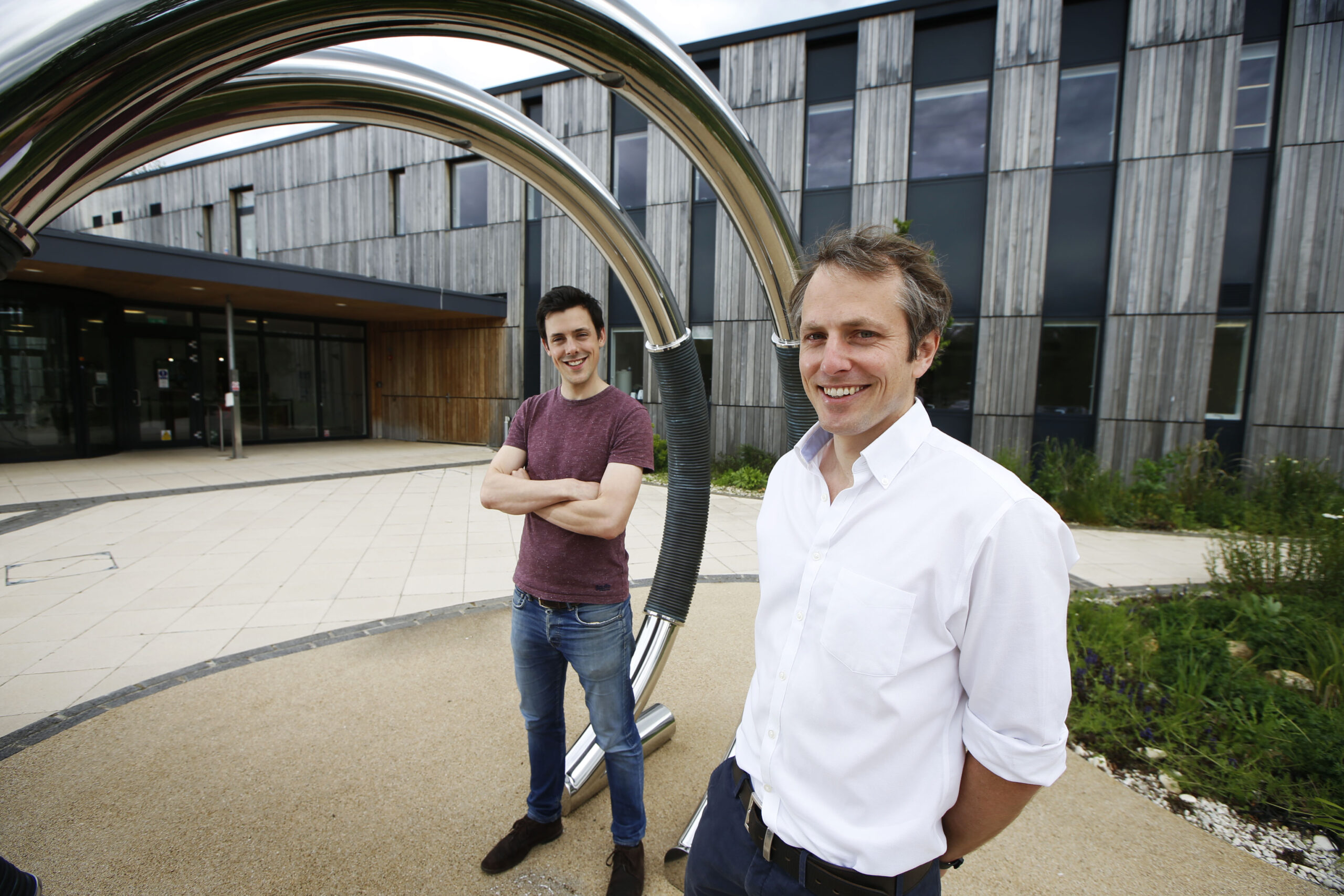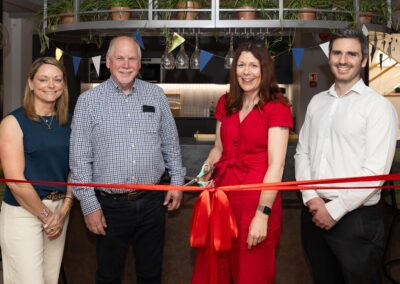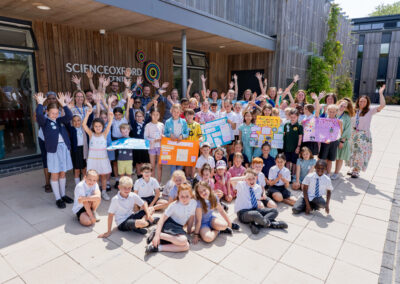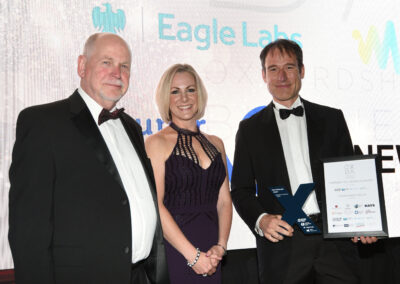A dynamic new biotech started by Dr David Llewellyn and Dr Joe Illingworth, DJS Antibodies is pioneering the development of novel therapeutics to treat the world’s most critical inflammatory diseases, a class of disease that accounts for more than 50% of deaths worldwide and has moved into our sister centre, Wood Centre for Innovation.
There are lots of companies attempting to work in this space but it’s HEPTAD – their revolutionary antibody discovery platform – that sets them apart from the crowd. It was developed to overcome the challenges associated with discovering therapeutic-quality antibodies for G-protein coupled receptors or GPCRs, the largest and most diverse group of membrane receptors.
These protein receptors act like the “eyes and ears” for individual cells making them an ideal drug target for various inflammatory diseases. GPCRs consist of a single polypeptide that is embedded in a cell’s plasma membrane. Seven segments of this molecule span the entire width of the membrane — which explains why GPCRs are sometimes called seven-transmembrane receptors – hence the “hept” in HEPTAD. Using their ground-breaking technology, DJS has discovered antibodies against targets that have been, to date, intractable to drug discovery.
How does it work exactly? As David says “that’s our secret, the company’s Coca-Cola recipe. We use it to create a very strong immune response against target disease-causing proteins.”
“The good thing about antibody drugs”, says David, “is that they are ideal for long-term chronic diseases, as the beneficial treatment effects can last for several weeks from a single shot, and they generally have fewer side effects than small molecule drugs due their high specificity”. In fact, so much so that the monoclonal antibody industry is now worth $100 billion worldwide.
Their lead project targets a validated GPCR for the treatment of Diabetic Kidney Disease – a long-term condition that causes the irreversible loss of kidney function and a problem for about 40% of patients with diabetes. But they are also working on a programme that is producing novel biological insights into myeloid cell inflammatory diseases like vasculitis and inflammatory skin conditions, as well as being really exciting as a potential cancer therapy.
“We’re working on cool immunology, but it’s making sure that we apply the exciting science to the right problem that will determine our success”, says David.
David (CEO) and Joe (CSO) met working in a lab at the Jenner Institute – now famous for developing the Oxford COVID-19 vaccine. They are both passionate about science and human biology and often talked about starting their own company. It was funding from Johnson & Johnson Innovation after being noticed at a business plan competition that got them started but discovering life-changing medicines is only for the stronghearted. The budget was so tight that they prepared their initial experiment in their bedrooms, rented a bench at Heyford Park Innovation Centre, near Bicester, and worked round the clock for a year to get the results. It was worth it as seed round funding from the newly-formed Oxford Sciences Innovation followed and then a cool £6 million of venture capital from the likes of Amgen Ventures, LifeArc, and Sedgwick Yard, which meant they could set up their own labs at the Wood Centre for Innovation. They are now a company of nine and growing fast….
Where do they see themselves in a five years’ time? David said “ultimately we want to keep exploring great science in the pursuit of making life-saving medicines and getting them to patients. To do this we’ll have to work collaboratively with great pharma companies to accelerate our antibody drugs into clinical trials. We then hope that we can repeat the process so that we have a strong pipeline of five to ten projects”.
And the name? Could it be D for David, J for Joe and S for…?
To find out more about DJS, see here.



